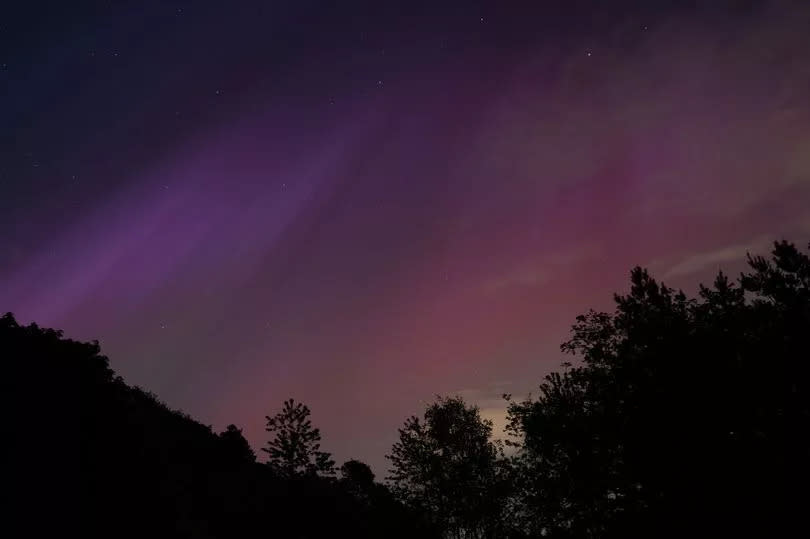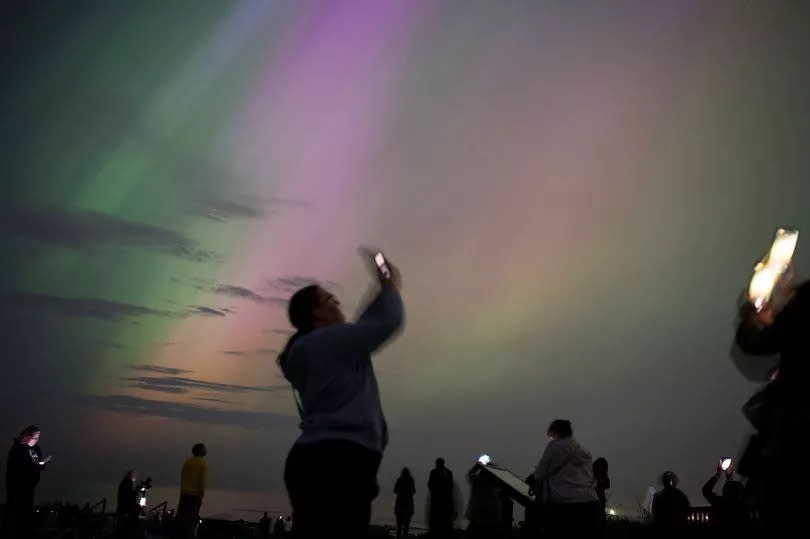Northern Lights alert for Scots to see stellar display again as solar storm could strike 'almost anytime'

People all over Scotland and the rest of the UK were treated to a stunning display of the Northern Lights over the past weekend, with countless people able to catch a glimpse of the lit-up night sky.
But if you missed out on seeing the aurora borealis, don't panic - there could be another opportunity to see them, and soon.
That's according to Lancaster University physics professor Jim Wild, who told the Mirror that a brand new display this week 'could not be ruled out' as a solar storm could strike and result in the phenomenon at nearly any time.
This is because the Sun remains very active and could fire off another coronal mass ejection towards the earth - which is what causes the aurora to appear.
Jim said: "At the moment, we know there is at least one more heading in our direction, but it’s not yet clear how whether it will hit Earth and if it does it’s unlikely to have as powerful an impact as the one that arrived on Friday. We can’t rule out more displays of the Northern Lights in the next few days, but for now it looks like last weekend’s activity was the main event.
"Events of the size we saw at the weekend typically occur every couple of decades, but that is just measure of statistical likelihood. The Sun is currently at the peak in its 11-year cycle of activity so further solar storms powerful enough to push the aurora toward the south of the UK are still very possible in the coming weeks and months."
This was echoed by by Greenwich Museums astronomer Greg Brown who advised that another storm could approach in the coming days - although it was almost impossible to predict with accuracy.
Sadly, the weather conditions this week may not be ideal for spotting the Northern Lights. A huge wall of rain is expected to barrel through the UK from the west this evening, and the increased cloud cover could block off any displays.

The Northern Lights become visible to the naked eye when particles from the Sun impact the Earth's magnetic field before being redirected toward the poles. When these particles hit the atmosphere, the energy produced turns into colours of light.
Professor Wild added: "During the months of the year when there are dark nights, it not unusual to see some auroral activity every night at high latitude. The same thing happens in the southern hemisphere, forming the southern lights, or Aurora Australis."
You can take a look at the Lancaster University-run AuroraWatch UK website to check if and when the Northern Lights could be visible.
Join the Daily Record's WhatsApp community here and get the latest news sent straight to your messages.

 Yahoo News
Yahoo News 
